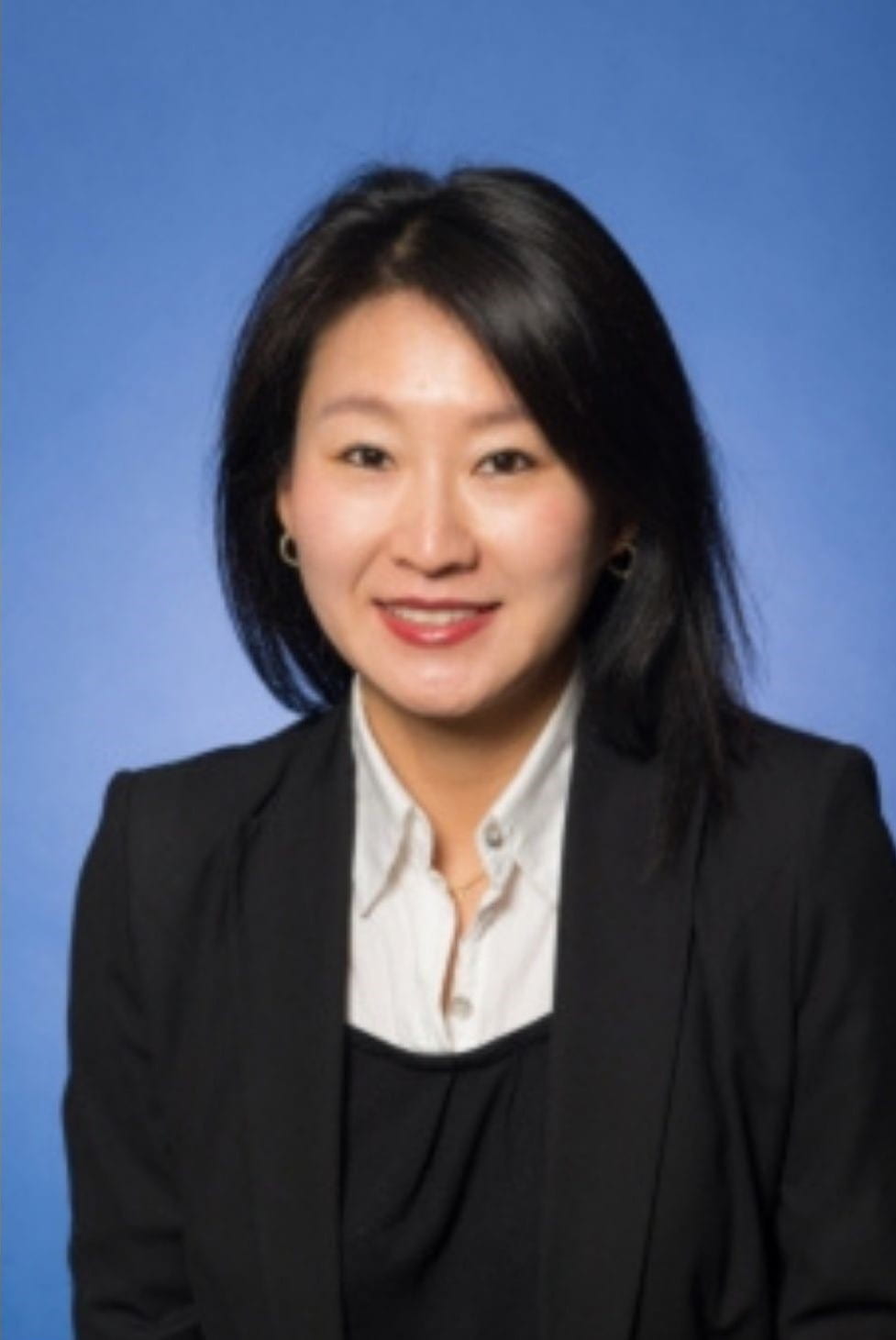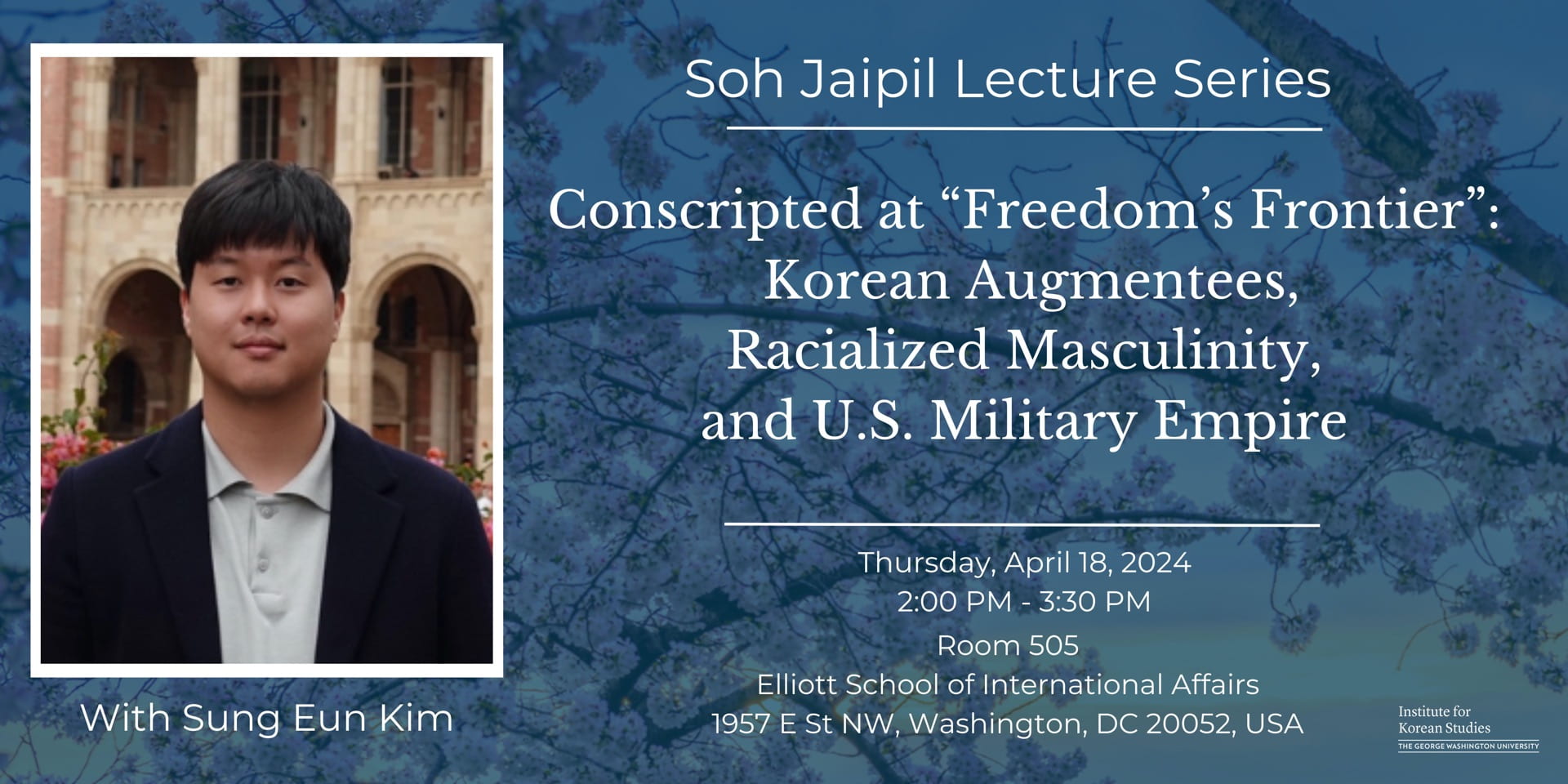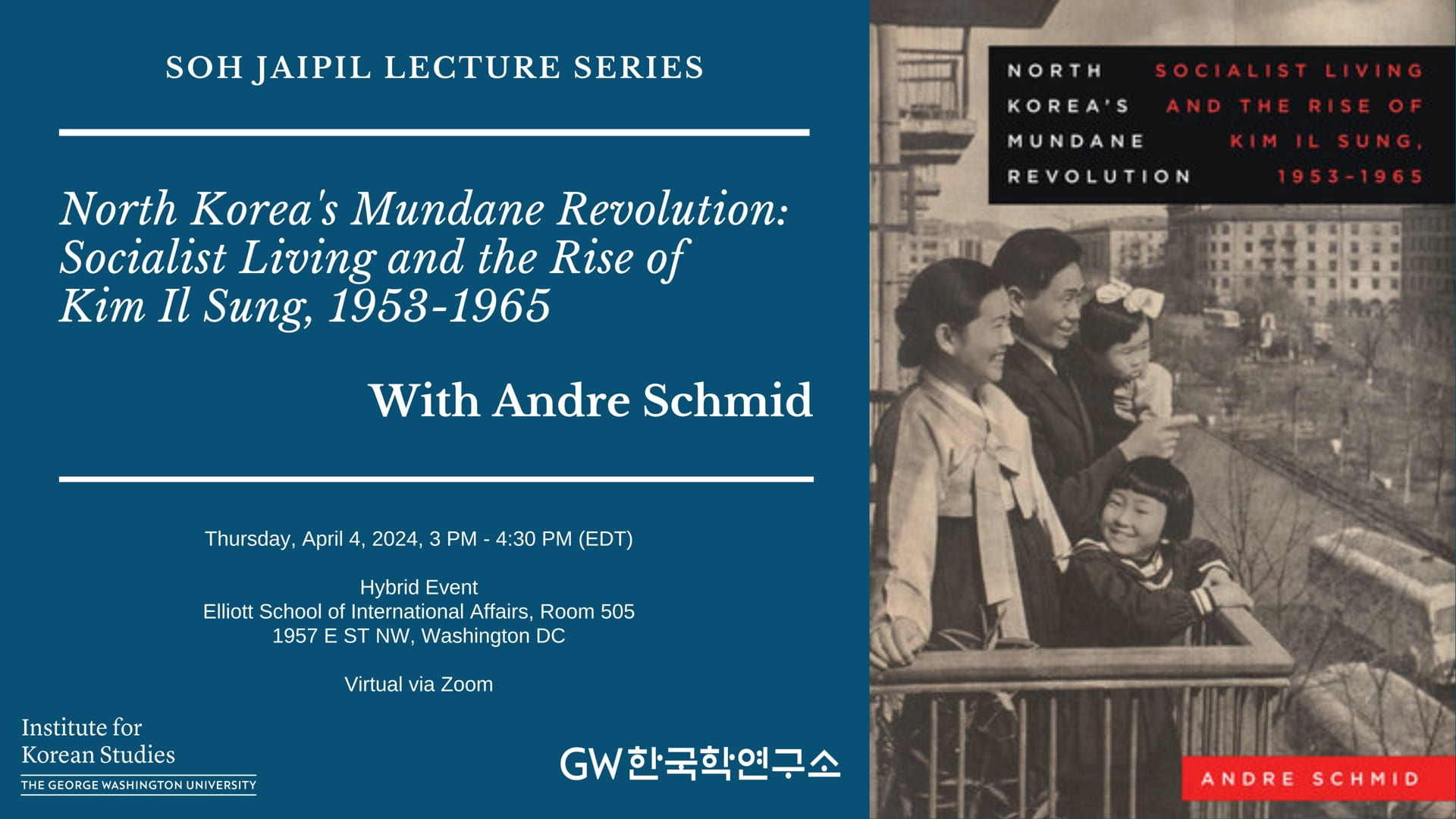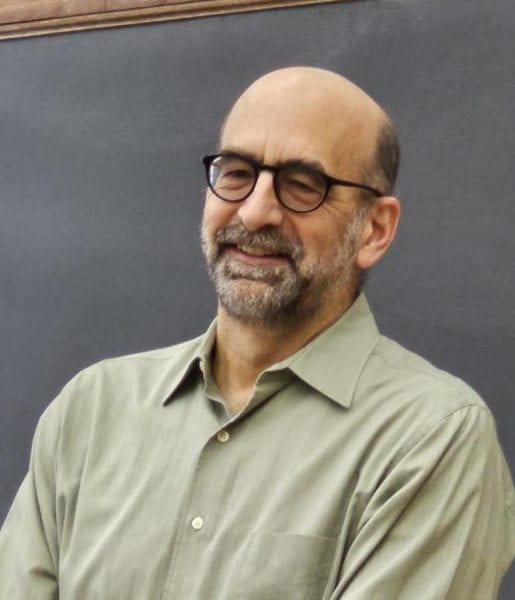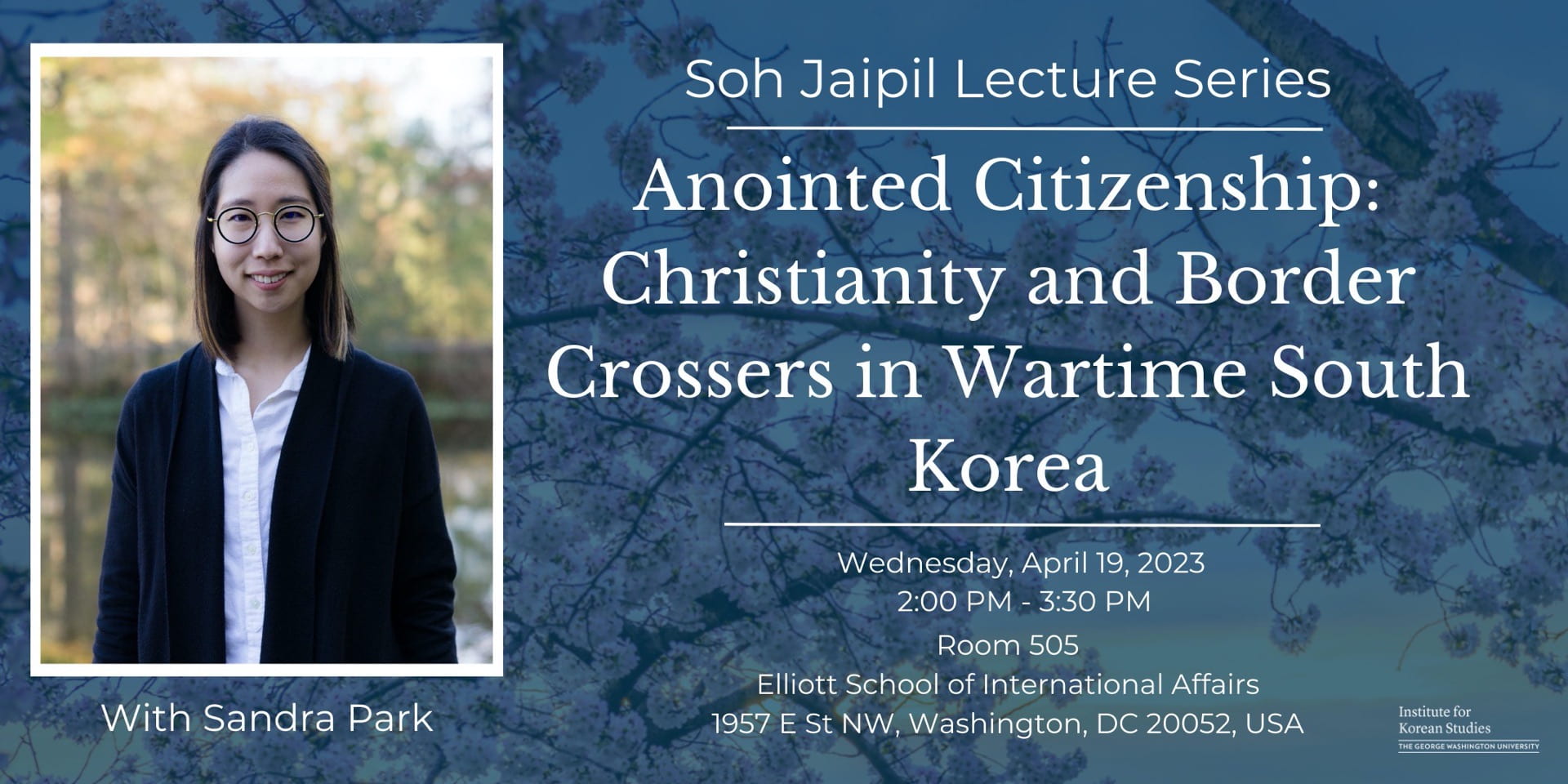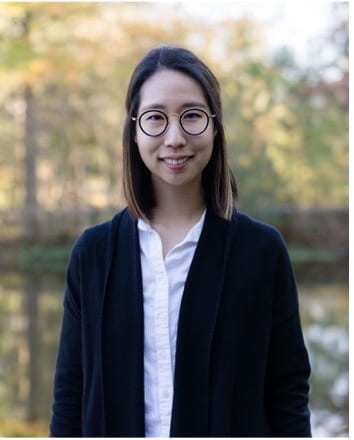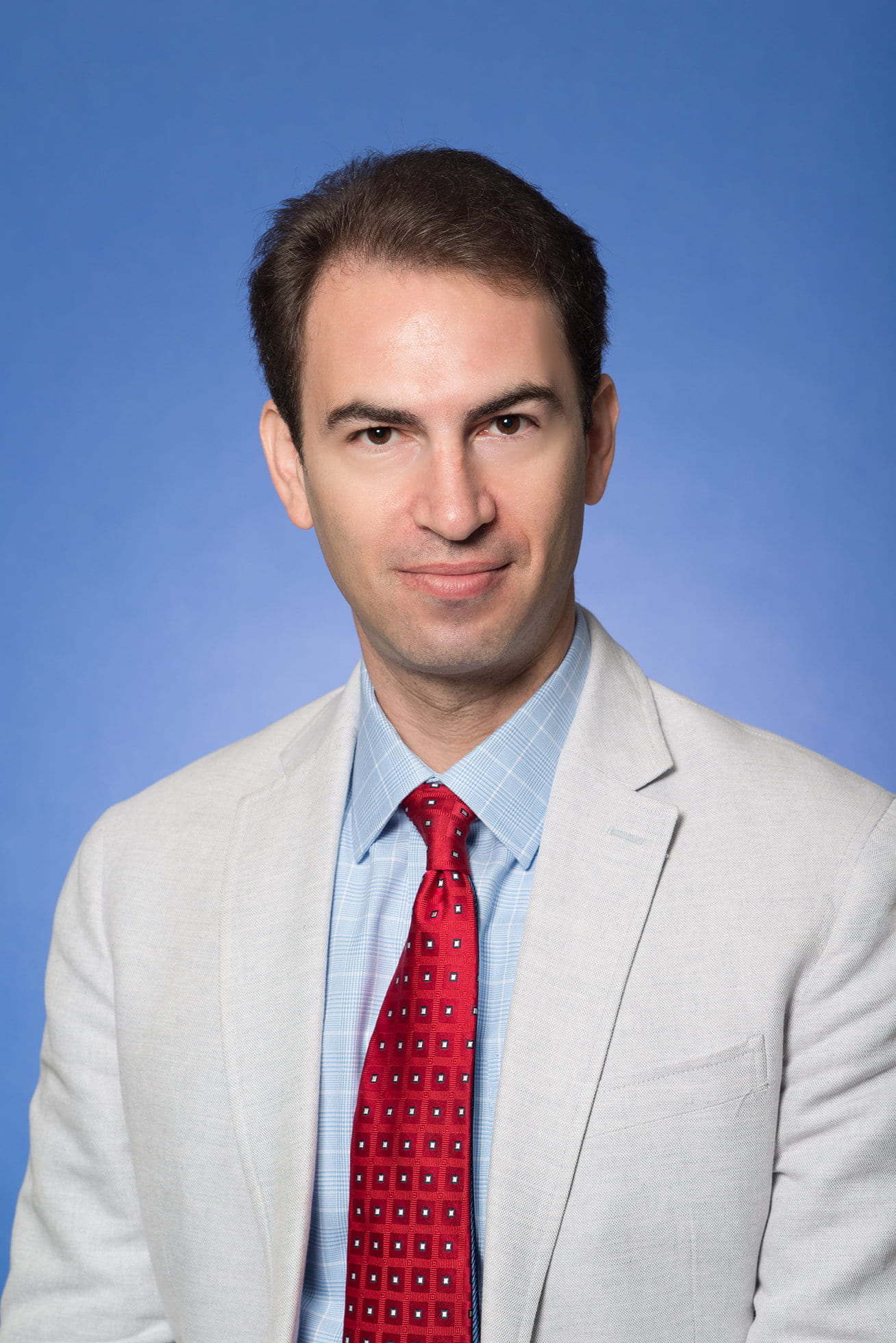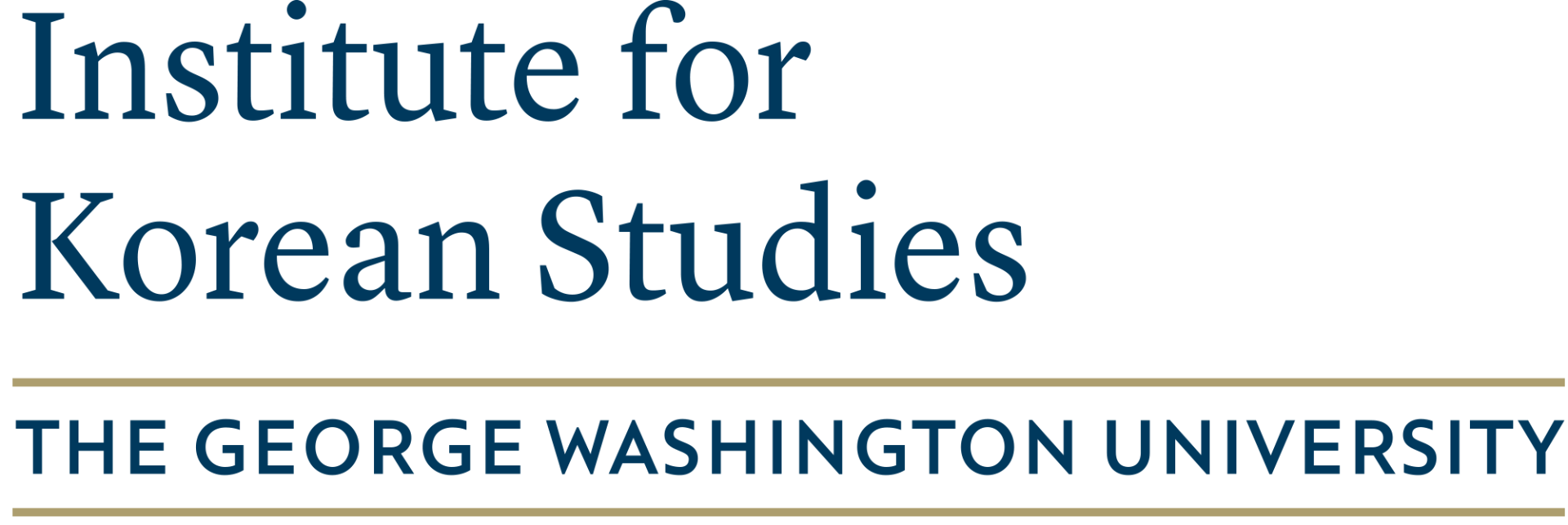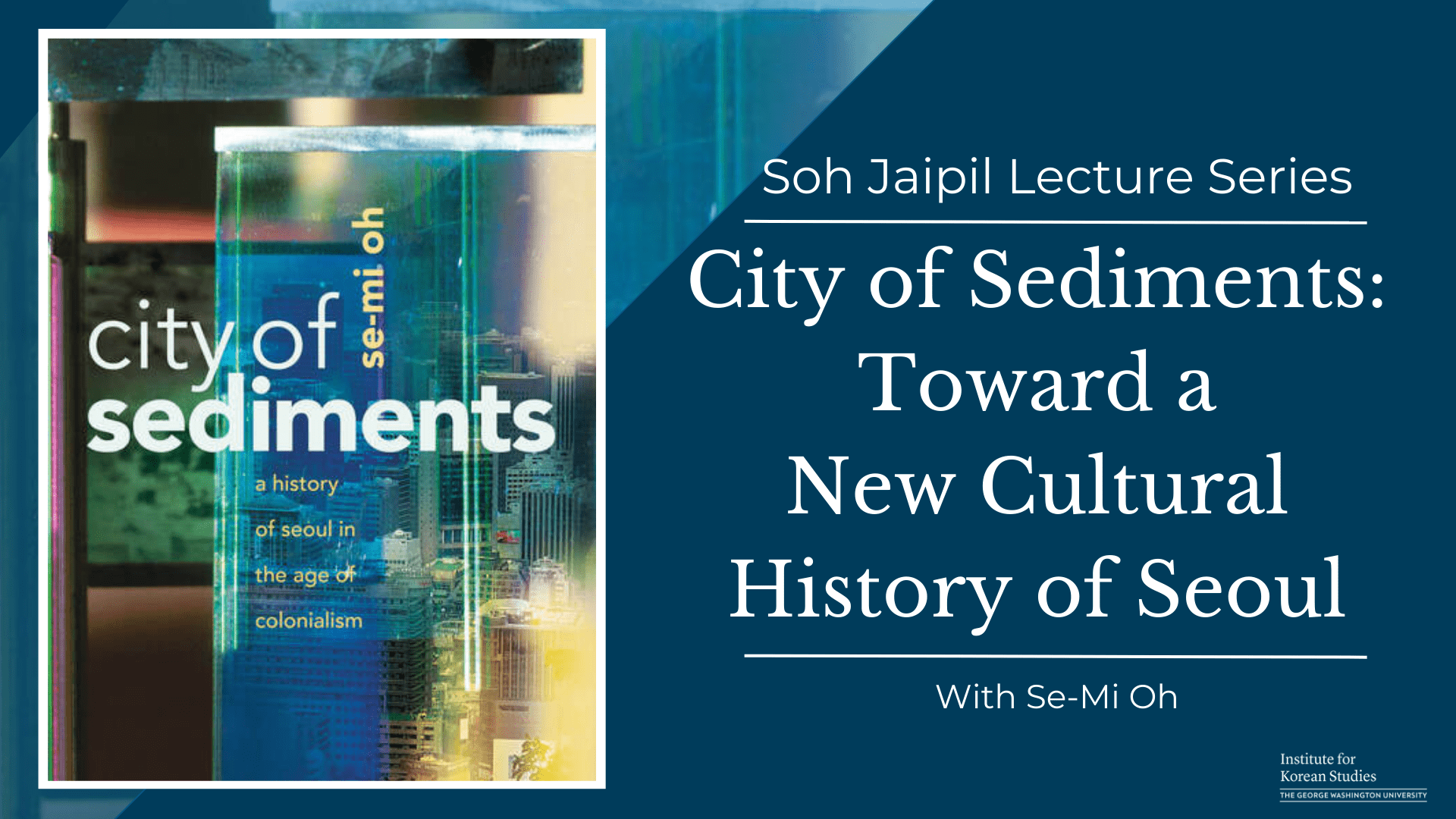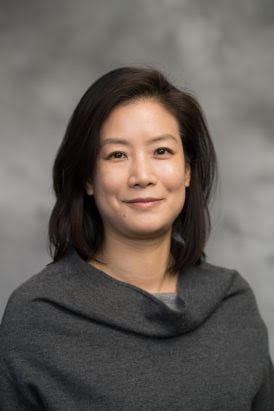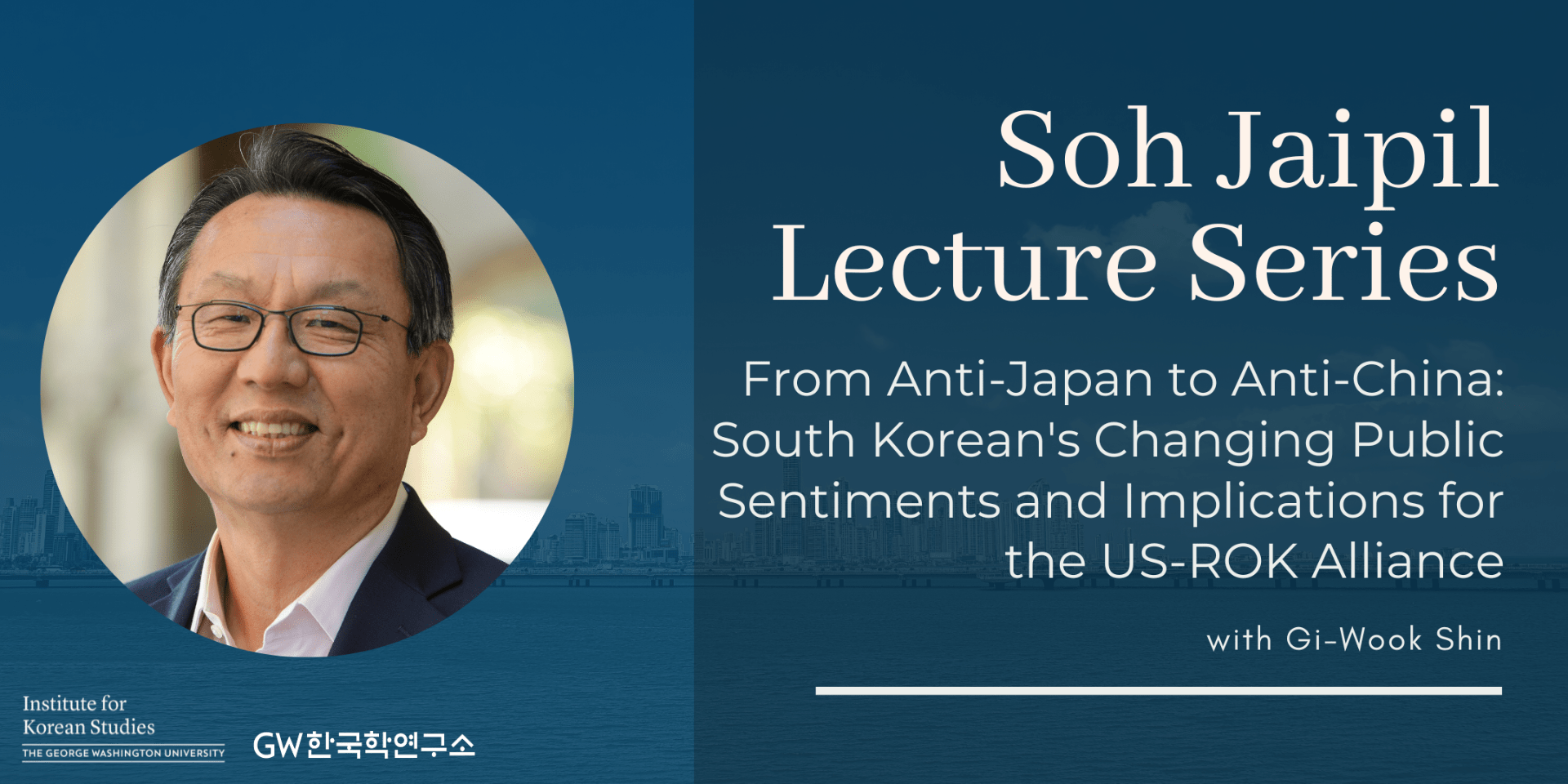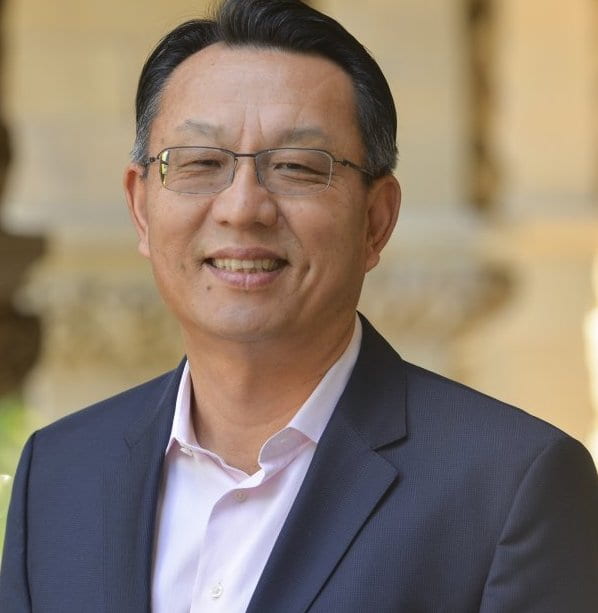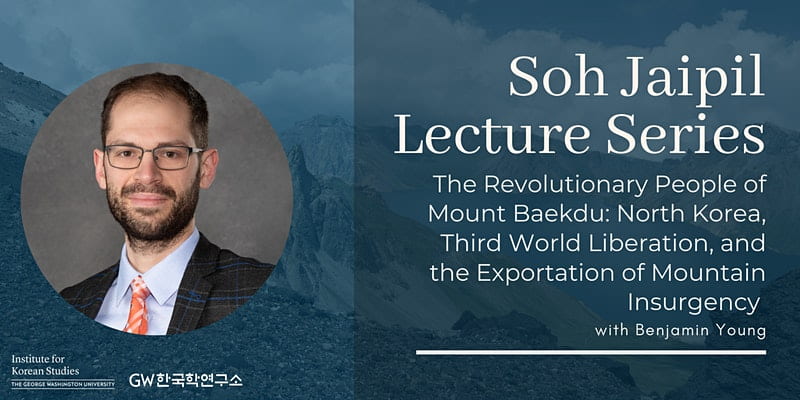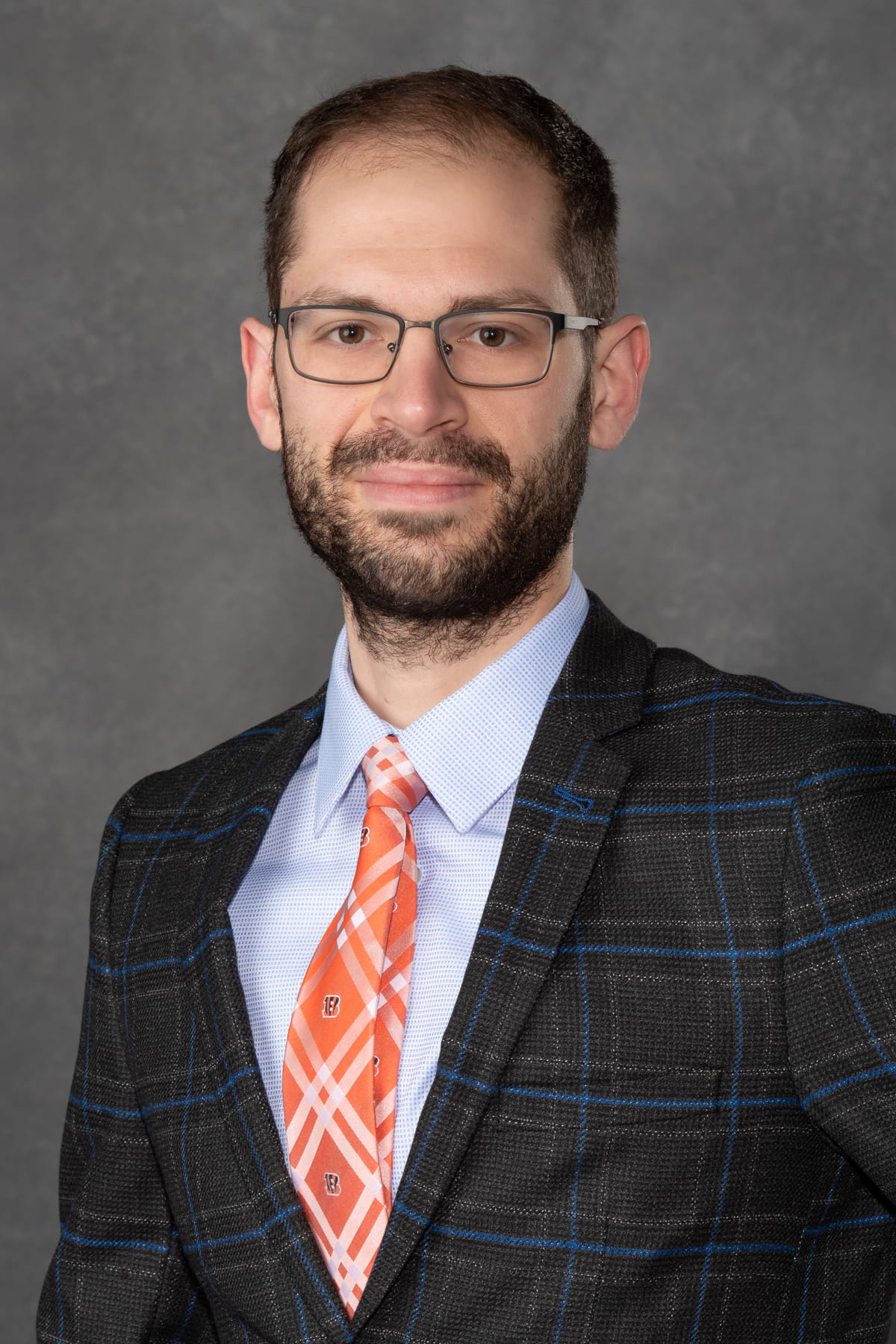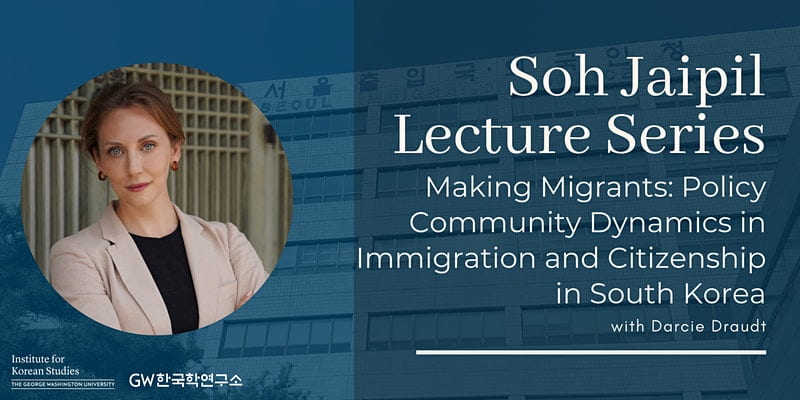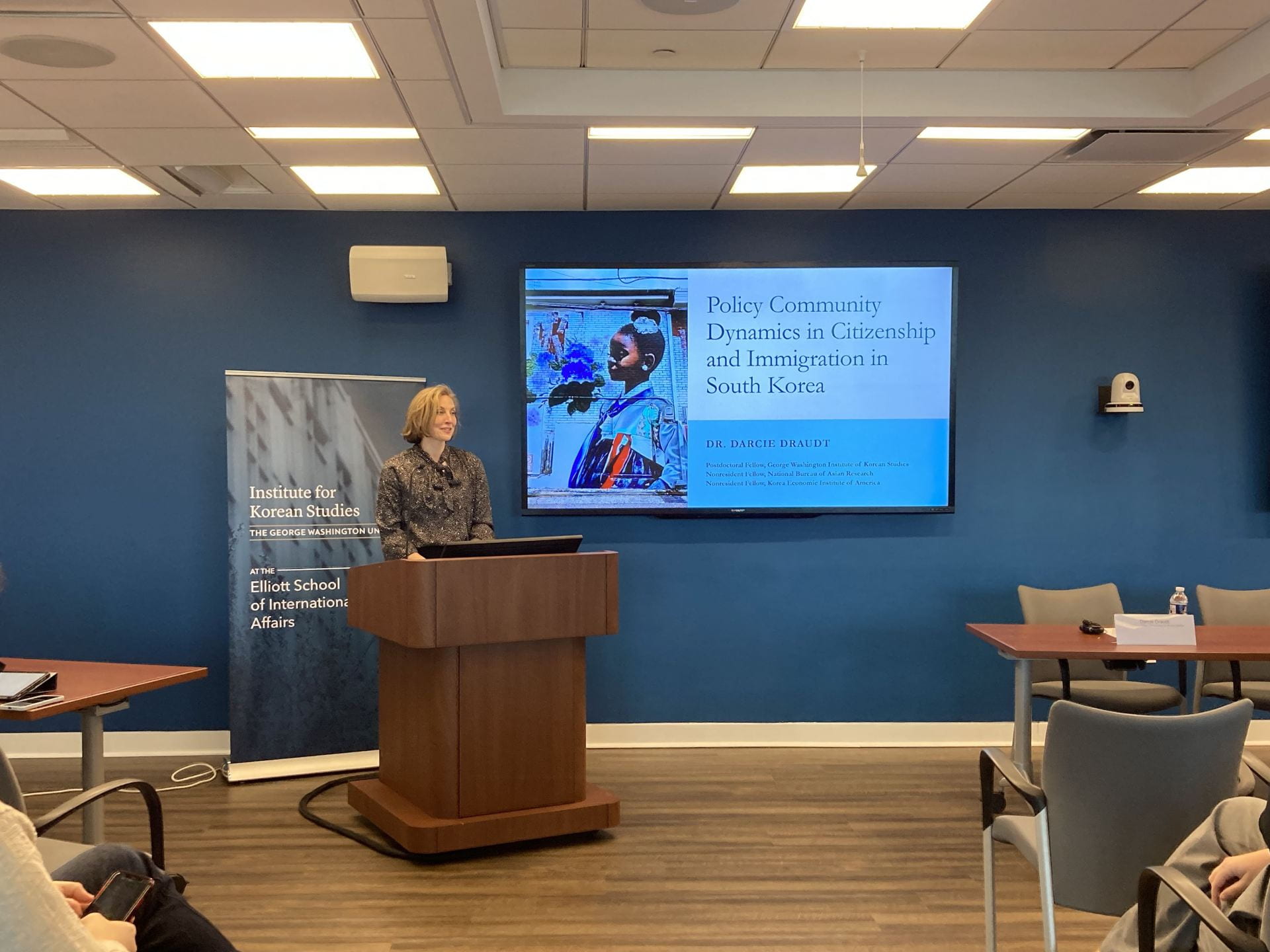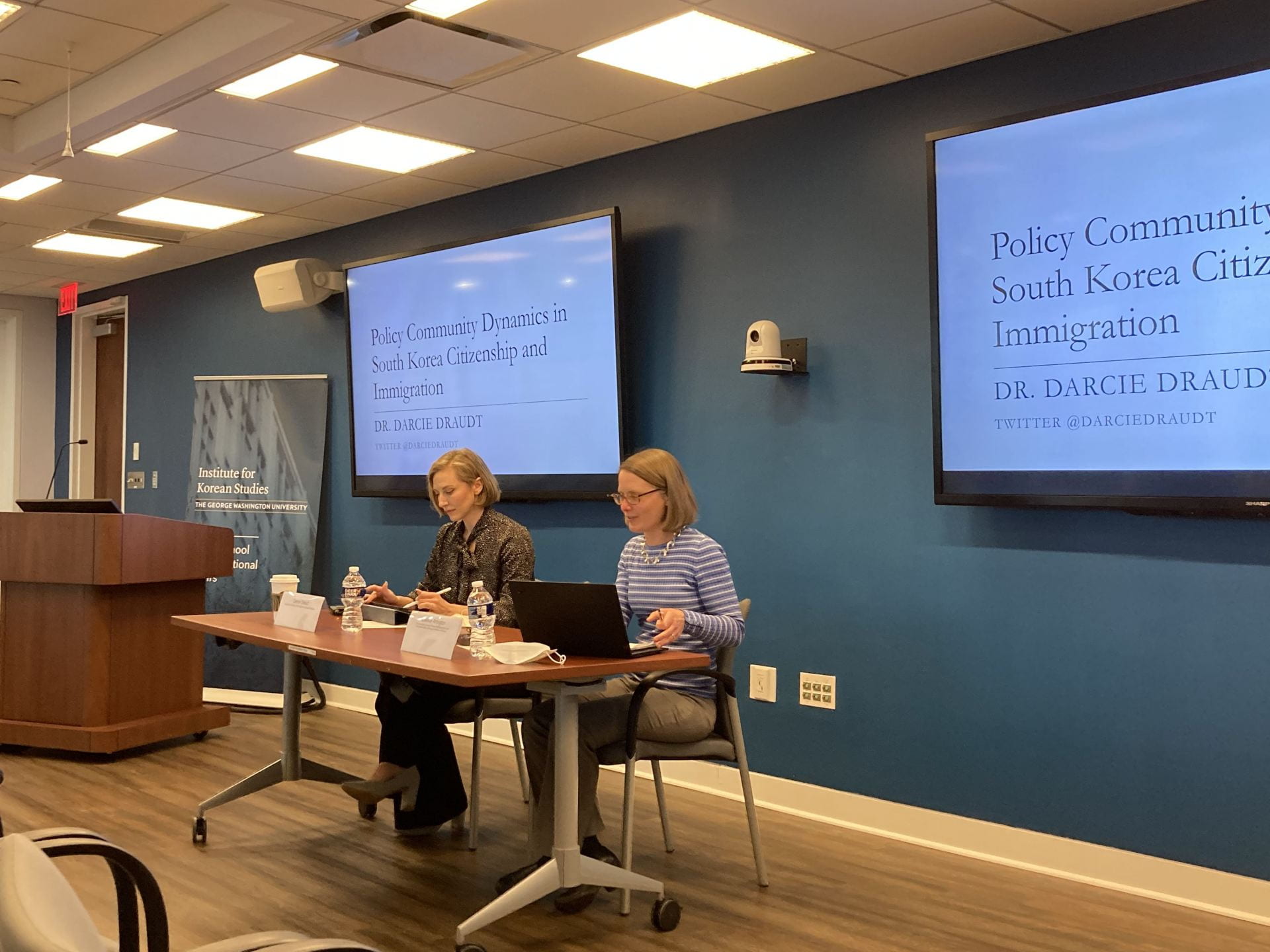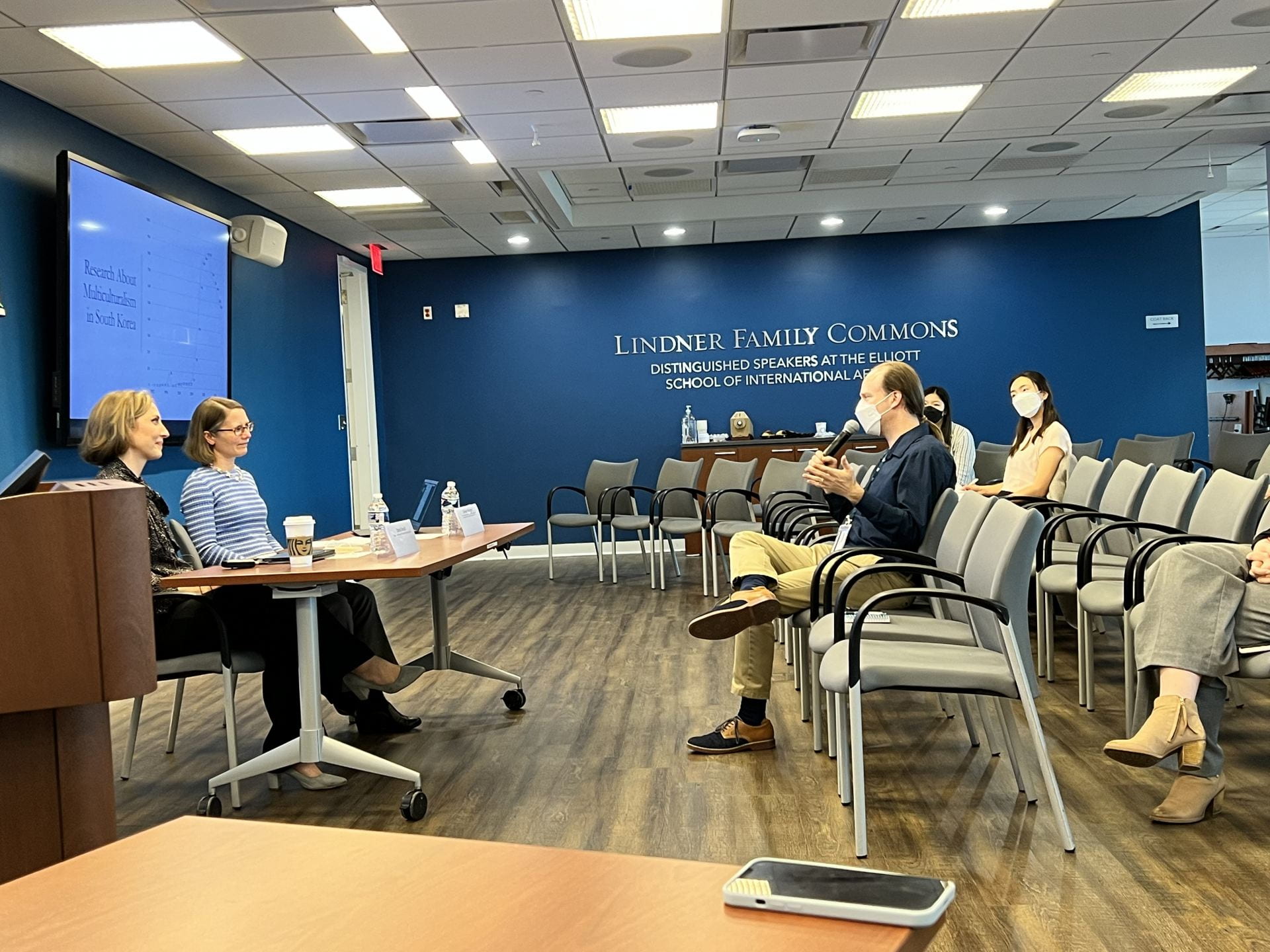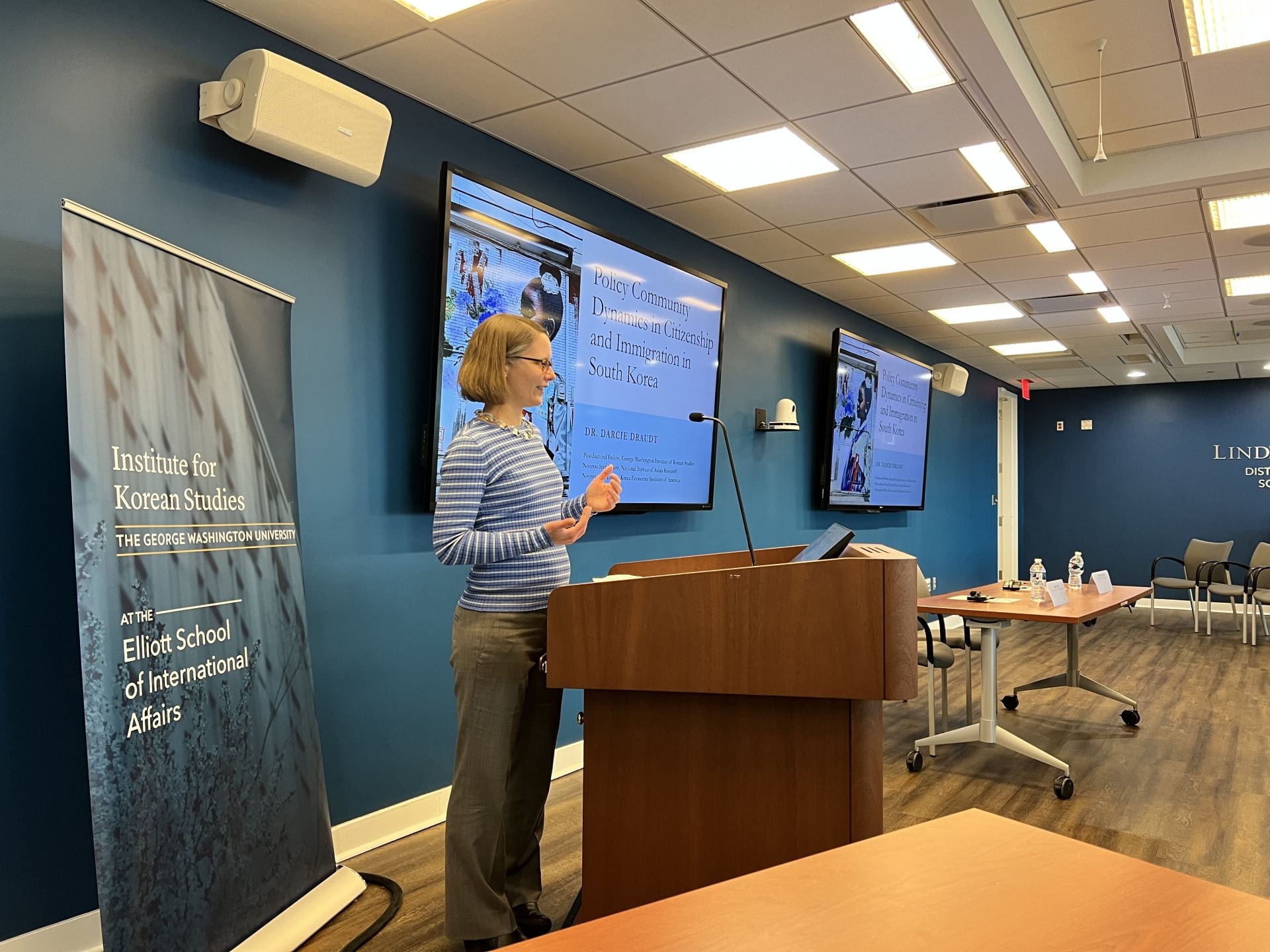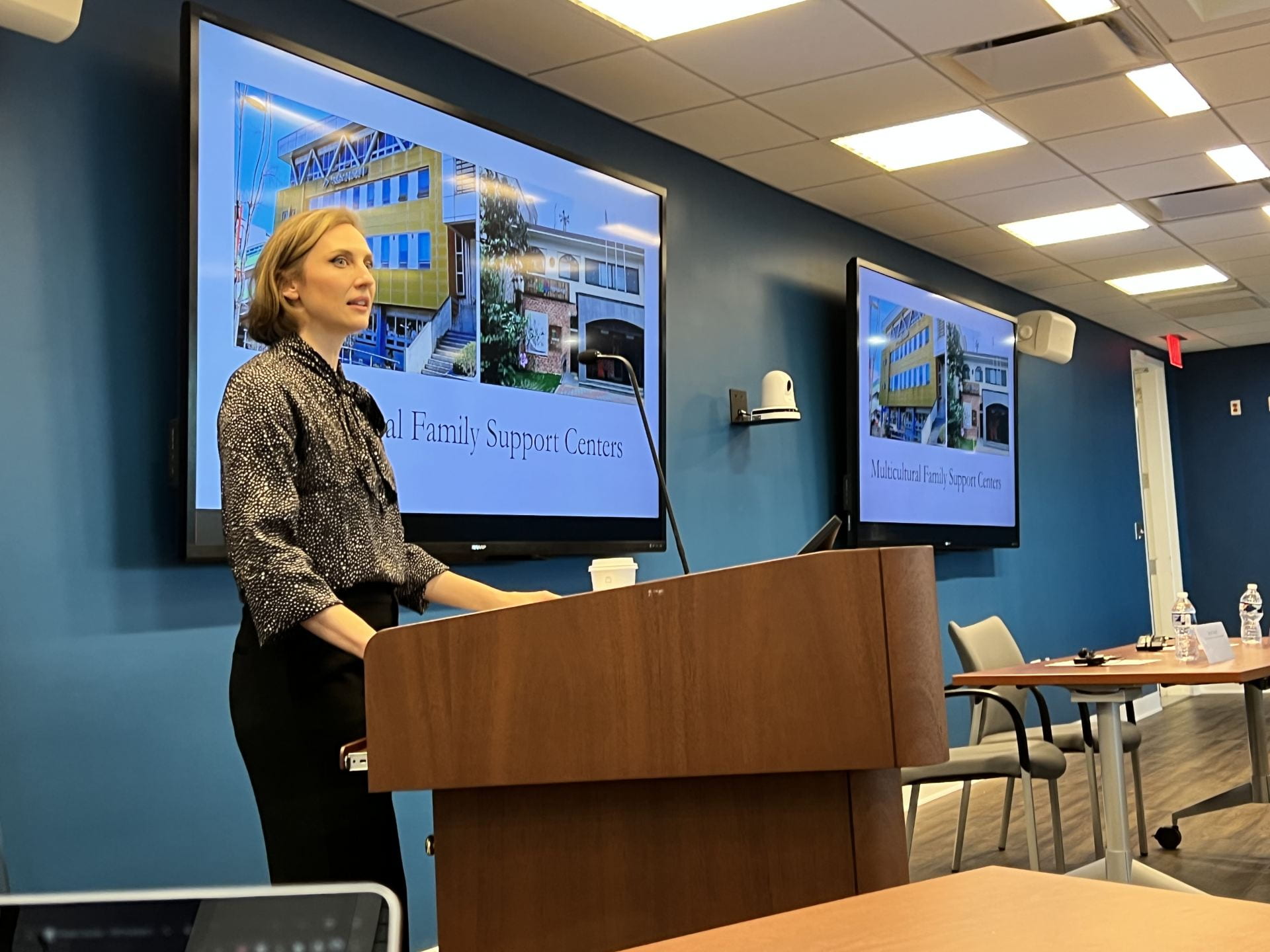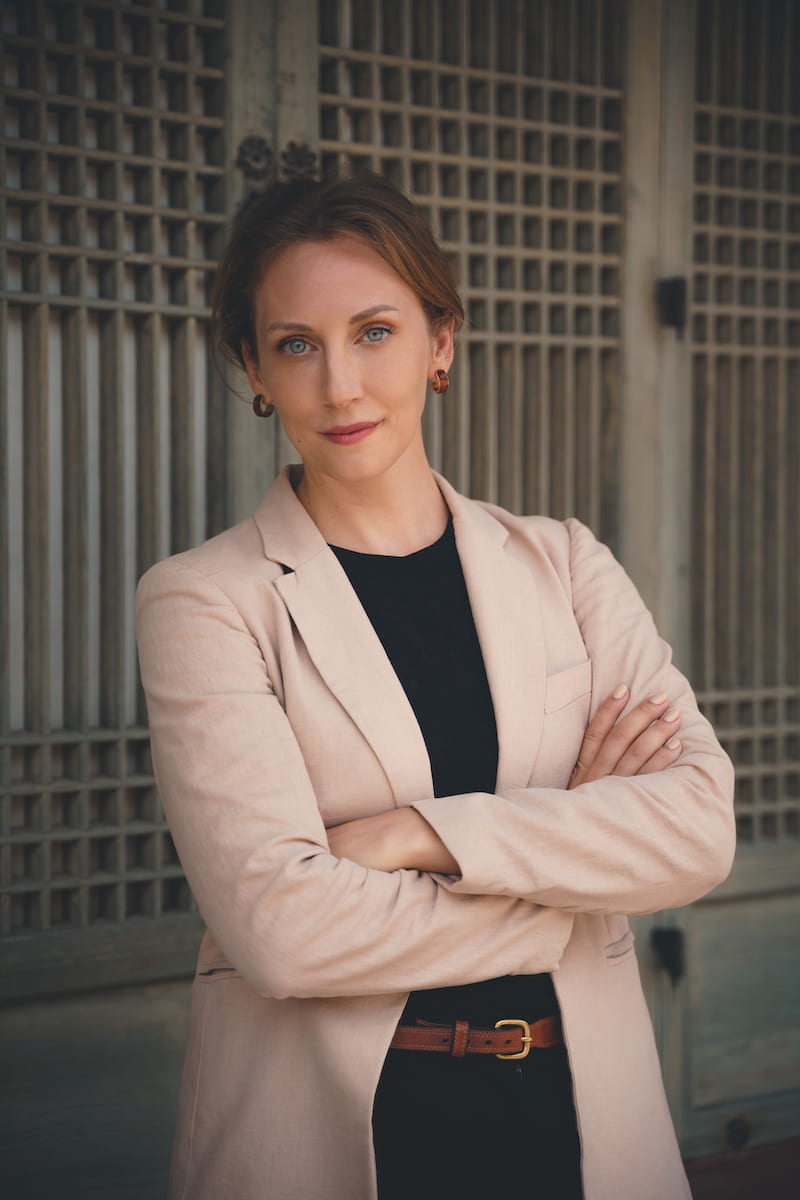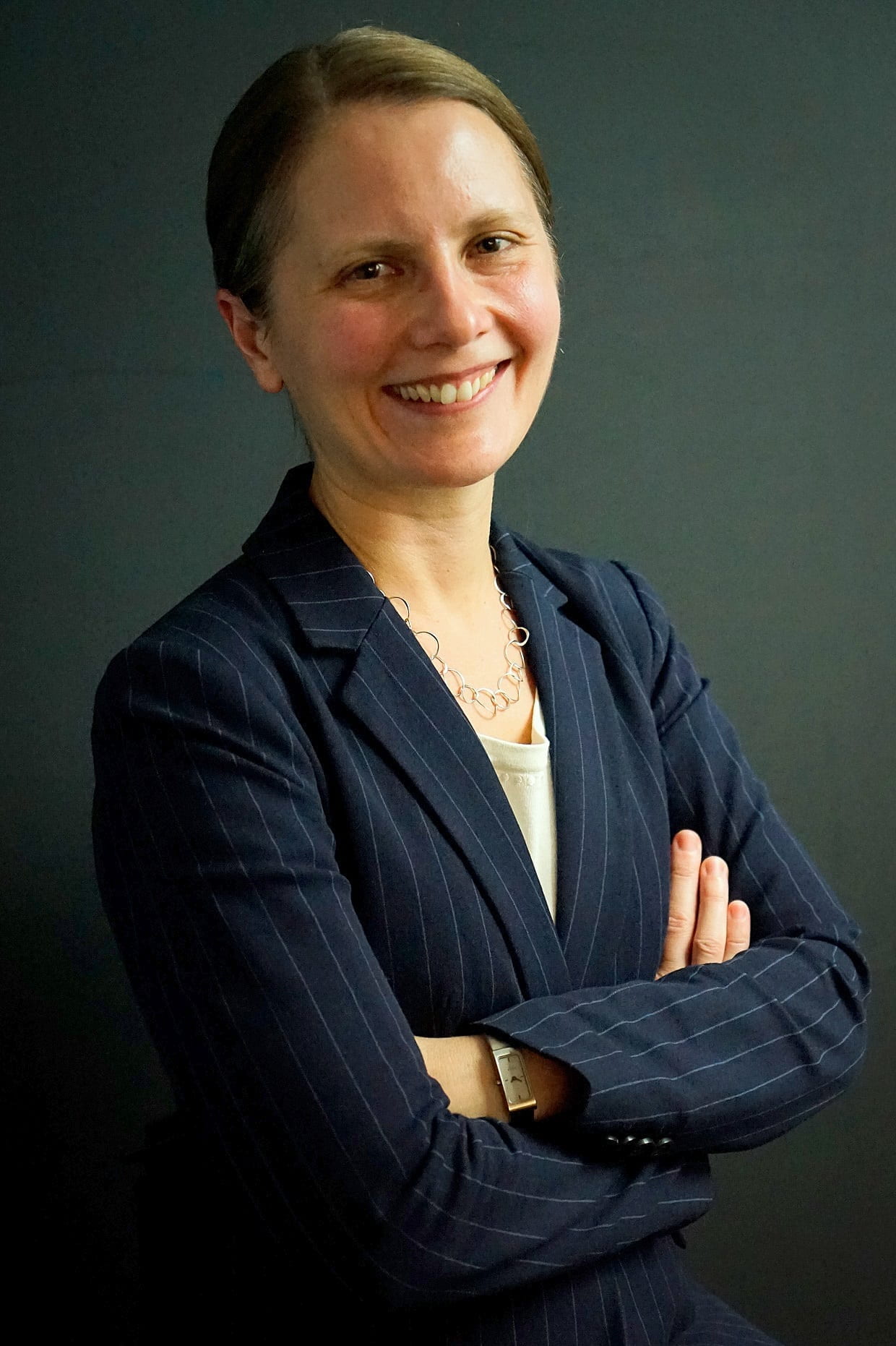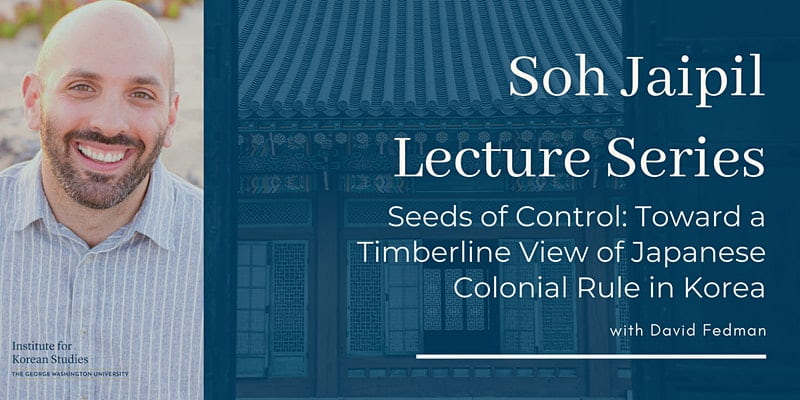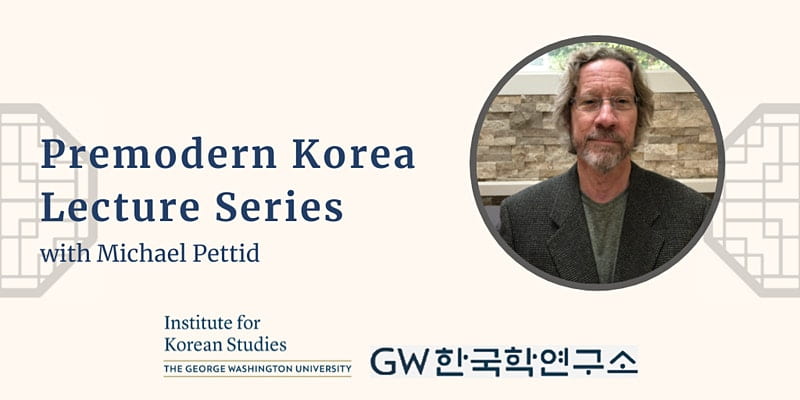Conscripted at “Freedom’s Frontier”:
Korean Augmentees, Racialized Masculinity, and U.S. Military Empire
Thursday, April 18, 2024
2:00 P.M – 3:30 P.M. EST
In-Person Event
Elliott School of International Affairs, Room 505
1957 E ST NW, Washington DC
About the Event
In 2022, the Korean War Memorial on the National Mall in Washington, DC, was reopened with a new “Wall of Remembrance.” Emblazoned on the panels commemorating the war dead were over 7,000 Korean names. Hailed as a civil rights “victory” by then-President Barack Obama nearly a decade earlier, the Korean War, as enshrined in the Wall of Remembrance, now includes Korean Augmentation Troops to the U.S. Army, or KATUSAs, among America’s multiracial fallen sons. Who were these vaunted figures and what was their role at “freedom’s frontier”? As a term referring to an elite cadre of South Korean soldiers conscripted into the U.S. Army from the Korean War to the present, “KATUSA” is part of a military-imperial vocabulary in South Korea that has assigned value and status to the men who have served in this capacity. Yet what goes unseen in the celebration of KATUSAs in South Korea–and now, in U.S. official commemoration around the Korean War–is the centrality of their racialization and emasculation to the role they played under the U.S. military empire. The GW Institute for Korean Studies invites you to join us for this special lecture as Kim reconsiders the significance of “freedom’s frontier,” an epithet most commonly associated with the demilitarized zone (DMZ), by analyzing the ambivalent sovereignty of the KATUSA.
Speaker
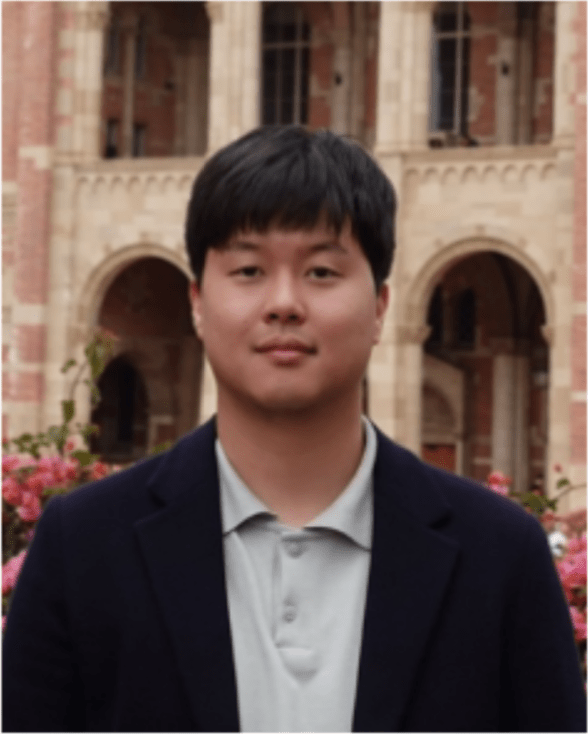
SUNG EUN KIM is the Postdoctoral Fellow at the George Washington University Institute for Korean Studies (GWIKS). He is an interdisciplinary historian of modern Korea whose research focuses on U.S.–ROK relations, the intersections of transnational Korean militarism and U.S. imperialism in the Asia-Pacific region, and the racial and sexual politics of colonial soldiering. He earned his Ph.D. in modern Korean history from UCLA, his M.A. in East Asian Regional Studies from Columbia University, and his B.A. in Asian Studies and Political Science from Vassar College.
Moderator
